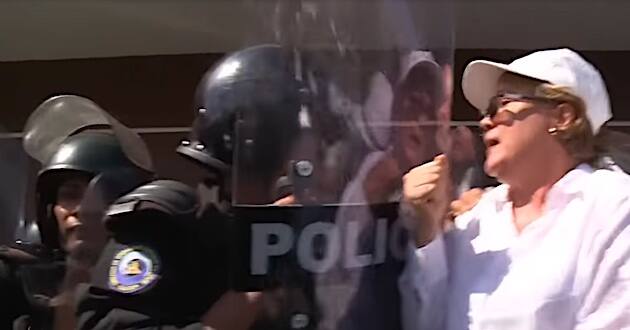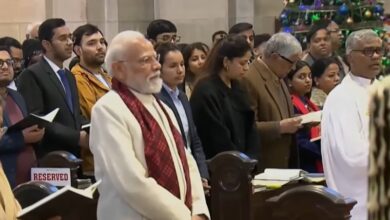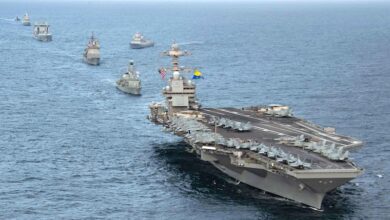Watchdog group condemns Nicaraguan religious persecution

International Christian Concern (ICC) is condemning the Nicaraguan government under the leadership of Daniel Ortega, accusing it of extreme religious intolerance and an escalating trend of tyranny.
“The regime has exhibited hostility towards Christianity from its inception, but recent events indicate a marked deterioration, particularly with a brutal crackdown on Catholics and now on evangelicals,” stated Jeff King, President of ICC.
According to reports, since 2018, President Ortega and his wife, who also serves as vice president, have orchestrated over 529 attacks against churches and religious organizations. These attacks have included the murder of an altar boy and the arbitrary arrest of dozens of priests, bishops, and Christian leaders.
“Life in Nicaragua is hell, because surveillance is brutal. You can’t say anything that’s against the government,” the Associated Press quoted an exiled priest. The news service said the priest and others spoke on condition of anonymity “out of fear of retribution against their families or communities in Nicaragua.”
Ortega, a Marxist guerilla, led the country into a civil war which ended in the Sandanista junta taking control in 1979. He was elected president in questionable elections but subsequently defeated in following elections. He returned to power but was faced with nationwide protests by students and pensioniers which he brutally put down. He was last elected in 2020 and began a campaign against organized religion, fueled by his Marxist beliefs. As the 2024 election looms, Ortega has charged his presidential opponents with corruption and held several kangaroo trials and jailed hundreds of religious, business, political and industry leaders who are currently under arrest.
READ: Book looks ar resurging Marxism
Recent reports from The Hill detail the dire situation, including the imprisonment of Monsignor Rolando Álvarez, who has been confined to a grim section of the Jorge Navarro La Modelo Penitentiary, known as the ‘Hellhole.’ Álvarez received a 26-year sentence on fabricated charges stemming from his outspoken criticism of the Ortega regime and its abuses of power.
The United States Commission on International Religious Freedom has also raised concerns, citing routine harassment of Catholic clergy and worshippers by government forces and sympathetic citizens. Moreover, 11 Protestant pastors affiliated with the U.S.-based Mountain Gateway ministry were convicted in absentia on fraudulent charges just last week.
At the International Religious Freedom Summit in Washington, D.C., held in January and attended by 1,500 individuals, a Nicaraguan priest shared his firsthand experience of beating and imprisonment. Despite speaking anonymously behind a screen and using a voice scrambler, he emphasized the imperative of defending human rights in the face of severe persecution.
The situation has become so dire that even routine religious practices are surveilled, with patrol cars stationed outside Catholic churches every Sunday to photograph attendees and record sermons.
In July 2022, Nicaragua expelled 18 nuns from the Missionaries of Charity order, a move that further underscores the government’s intolerance towards religious organizations.
Pope Francis addressed the situation in Nicaragua during his annual address on January 1, condemning the arrests of “at least 14 priests, two seminarians, and a bishop.” The U.S. Department of State has also taken action, adding Nicaragua to its list of Countries of Particular Concern, which identifies nations that egregiously violate religious freedom.
Jeff King, who has served as ICC President since 2003 and is recognized as one of the foremost experts on religious persecution globally, underscored the importance of international solidarity with the persecuted church.
“It’s crucial for Christians worldwide to stand in solidarity with the persecuted church,” King emphasized. “They must be assured that fellow believers are offering prayers and actively advocating on their behalf.”
Nicaragua’s attacks on the church come as it is also working to install both China and Russia as a replacements to the United States as the foremost influence in the region.
–Dwight Widaman








